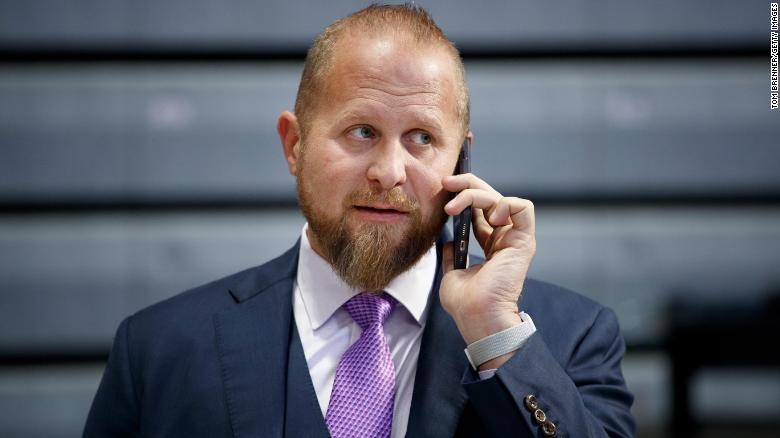(CNN)Bill Stepien, President Donald Trump's newly minted campaign manager following a leadership shake-up Wednesday night, brings a vital understanding of data and metrics to the President's reelection bid as it looks to turn around sinking poll numbers in key battleground contests.
Stepien added more than a decade of campaign experience to the Trump campaign's roster when it first looked to course-correct in 2016 amid a slew of gloomy poll numbers both nationally and in battleground states.
As the national director for John McCain's 2008 presidential campaign and New Hampshire political director on President George W. Bush's 2004 reelection effort, Stepien brought a heavy dose of campaign experience to Trump's operation. But he also injected some controversy into Trump's first run.
Stepien had served as campaign manager and deputy chief of staff to New Jersey Gov. Chris Christie, a close confidant and adviser to Trump in 2016. But Christie fired Stepien in January 2014 amid the Bridgegate scandal, in which Christie aides directed the closure of lanes on the George Washington Bridge as political retribution.
Stepien snagged a senior role in Trump's administration as White House political director and, most recently, served as deputy to then-campaign manager Brad Parscale, whom he replaced on Wednesday.
Trump's decision to name Stepien deputy campaign manager in May was viewed by many around the campaign as an effort by Trump's son-in-law and adviser, Jared Kushner, to ensure a successor loyal to him in the event Parscale would need to be pushed out.
After a one-on-one meeting between Trump and Stepien on Tuesday, Kushner informed Parscale of the decision to demote him, according to a source familiar with the conversation.
Stepien's hire in 2016 was the first addition to the campaign since Counselor to the President Kellyanne Conway took over as then-campaign manager, and former top Trump adviser Steve Bannon took over as then-CEO. A source with knowledge of the hire told CNN at the time that Bannon played a key role in bringing on Stepien.
Stepien had been widely expected to run Christie's 2016 presidential campaign before his dismissal. He was ultimately not charged in the federal investigation into the lane closures -- though court documents later revealed that a Christie aide had texted a colleague amid Christie's news conference on the bubbling scandal in December 2013 that Christie "just flat out lied about senior staff and Stepien not being involved."
During his time in the White House, Stepien has had his disagreements with other members of Trump's inner circle. In December 2017, former Trump campaign manager Corey Lewandowski vented broadly about how the administration was operating but focused his frustrations on Stepien, the then-White House political director, in an exchange in front of Trump.
The President listened and absorbed, letting the two men battle it out, according to a campaign operative. The loud disagreement spilled into the outer Oval after the meeting before Stepien and Lewandowski eventually stepped outside.
At the time, some Trump allies and other Republican strategists also pointed to the White House political shop as a weak link, including Stepien.
"Usually you have a political operative who has the gravitas to have interactions with the President. That doesn't exist in the administration right now," the former Trump campaign operative said at the time. "We need to elevate a political person that the President trusts and respects."
Stepien has expertise in turning successes from the administration on very specific issues into tailored, focused messaging to very specific groups of voters.
That focus on particulars seemed apparent when Stepien told CNN in 2017 that Trump was willing to deal with the political realities of 2018, even if that meant staying out of the way in some races.
"The President is a very results-oriented president. He wants seats won," Stepien said at the time. "There are obvious ways to help candidates. ... There are less obvious ways to engage."
Stepien also argued at the time that the midterms would not be a referendum on Trump.
"I think it is the referendum on the people whose names are on the ballot, and that's Congress," he said. "I think voters voiced a lot of frustration this year about the lack of progress in Congress in passing the President's agenda that they voted for overwhelmingly just a year ago."



















